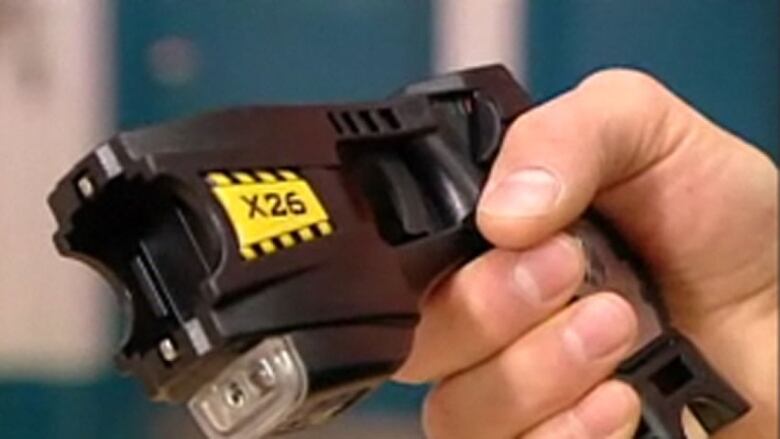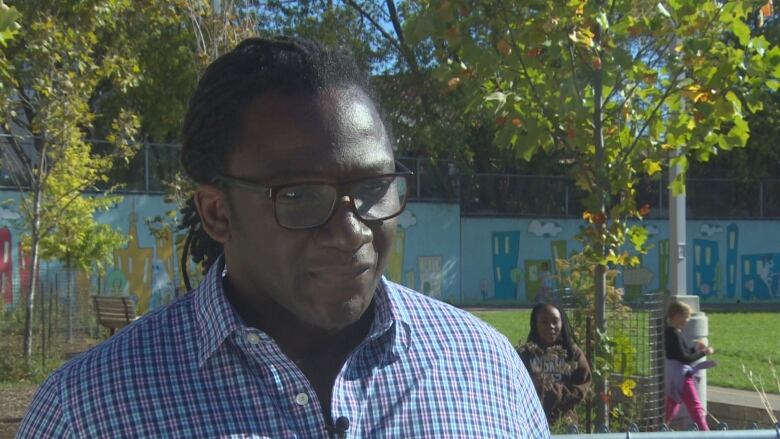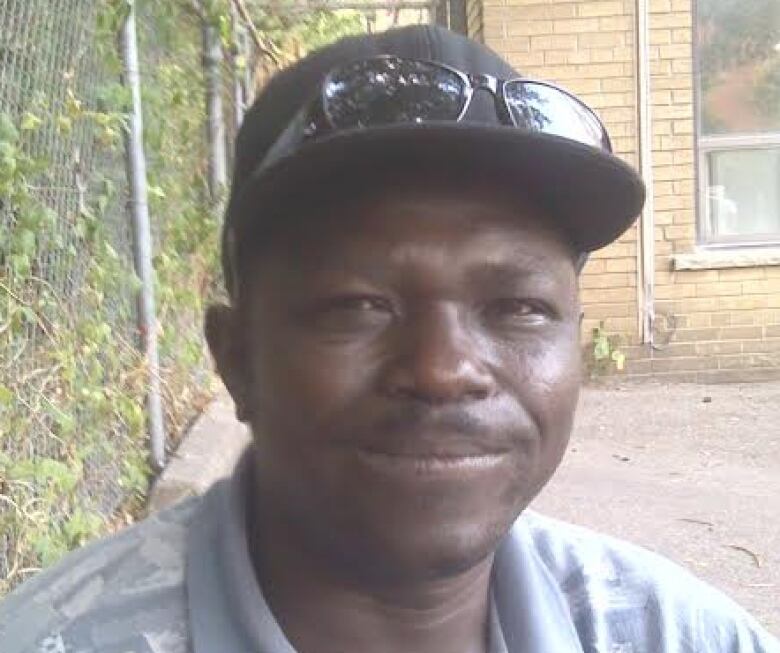Should all cops carry Tasers? Toronto police board meeting to review use of lethal force
Review follows 11 coroner's inquests over a decade recommending Tasers be deployed to all front-line officers

Toronto's police services board is set to discuss Tasers and the use of less lethal force, but its Wednesday meeting could be disrupted by a protest calling for more de-escalation and crisis training for officers instead.
In the last decade, the coroner in11 inquests has recommended full deployment ofTasers Conducted Energy Weapons (CEWs) to all front-line officers, according to a Toronto police document released last week.
The Toronto Police Service "believes that through proper policy, procedures, training and accountability, the CEW is an important use of force option that can help maintain public and officer safety, and assist with its goal of zero harm/zero death," thedocument read.
More weapons 'notthe answer,' advocates say
While nearly a dozen inquests have called for all field officers to be equipped withTasers, advocates like Nigel Barriffecontend the proposal isn't an effective way to reduce police violence. He fearsa focus onCEWsovershadows other recommendations aimed at helping police de-escalate tense situations.

"We know that having more weapons in the hands of police officers is not the answer," he told CBC Toronto ahead of Wednesday's police board meeting.
"What we need is more de-escalation policies, more de-escalation training."
Barriffe will be speakingin front ofthe board, which consistsof Mayor John Tory, two city councillors,three provincial appointees and chair Andy Pringle.
11 inquests in last decade recommendedTasers
These calls for change to lethal force aren't new.
Four years ago, Toronto's police boardconducted a consultation on Tasers and decided not to expand the use of CEWs across the service, but a recent coroner's inquest has re-ignited debate about policeuse of excessive force and solutions to quell escalating tensions and deaths within the community.
- Andrew Lokucoroner's inquest urges Tasersfor police
-
Advocates holding 'feet to the fire' want Loku inquest recommendations in place in 1 year
In July, a five-person jury ata coroner's inquest into the death of Andrew Lokuwho was wielding a hammer when he was fatally shot by Toronto police two years ago handed down 39 recommendations.They included equipping every front-line police officer in the province with a Taserand police cars with non-lethal means of force, including shields and helmets.
The jury also recommendedamendingthe annual use-of-force recertification to include qualification in areas, such as mental health, anti-racism and particularly anti-Black racism.

Loku, a 45-year-old father of five originally from South Sudan, had a history of mental health issues. The inquest heard testimony from Toronto police Const. Andrew Doyle, who pulled the trigger twice.
The 13-year veteran testified he shot Lokuon July 5, 2015 as the manadvanced toward him, hammer raised, in the hallway of his apartment building, whichhouses people with mental-health challenges.
Loku'sdeath, and the Special Investigations Unit's decision not tolay charges against Doyle,sparked protests outside police headquarters by Black Lives Matter Toronto that lasted more than two weeks.
The activistssaidpolice officers areunable to adequately deal with people under mental distress.

In another push for changes to policeuse of force,provincial ombudsman Paul Dub issued a scathing review of police training in Ontario last year. He wants officersto get better training in de-escalation techniques, saying theyget plenty of instruction on how to use their guns, but not on how to use their mouths.
That comment was based largely onhis examination of 19 fatal police shootingsduring the period after thedeath of Toronto teenager SammyYatimin the summer of 2013 until the release of his report.
At the time, Dub pointed outthere were already well over 100 coroner's jury recommendations calling for improved police training.
That's in addition to some 84 recommendations by Supreme Court Justice Frank Iacobucci that included the creation of a police and mental-health oversight body, and a requirement that new constables complete a mental health first-aid course.
With files from CBC's Talia Ricci












_(720p).jpg)


 OFFICIAL HD MUSIC VIDEO.jpg)
.jpg)



























































































